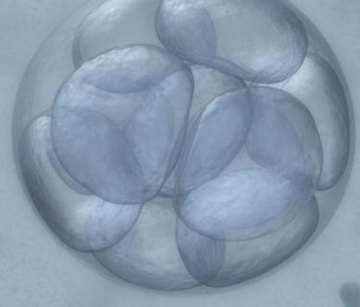
What Is Embryo Storage?
Embryo storage is the cryopreservation of a woman’s embryos for later use. To collect eggs, women are often administered fertility drugs to stimulate the ovaries into producing more eggs. The eggs can then be used in one of many different types of fertilization methods, and the resulting embryos frozen and stored for future treatment cycles or donation. If embryos are to be stored, they are cryopreserved by either the vitrification technique or the more conventional slow-freeze method and transferred to liquid nitrogen-filled tanks for long-term preservation.
Who Uses Embryo Storage and Why?
- Patients undergoing in vitro fertilization (IVF) or intra-cytoplasmic sperm injection (ICSI) treatment
- Women concerned with future fertility
- Cancer Patients
- Military Personnel, Police Officers, Firefighters
- High Impact Athletes
- Transgender Clients
- Women wanting to donate embryos
There are many types of people and many reasons for using embryo storage. The most common reason for storing embryos is to have the ability to use them in future IVF or ICSI cycles. It is more cost-effective to undergo egg collection once and store unused embryos instead of collecting eggs before each treatment. At ReproTech, we are known for providing many affordable and cost-effective options for long-term embryo storage. For more information on next steps, please contact us at one of our locations by clicking here.
The Long-Term Embryo Storage Experts
ReproTech was founded to provide long-term embryo storage to hospitals and IVF centers around the country, and this remains our primary focus to this day.
RTL provides safe and secure, long-term embryo storage for patients from leading clinics across the nation. Our clients include IVF clinics, hospitals, research institutions, and thousands of individuals who trust their hopes to our advanced storage and shipping processes.
We have embryo storage facilities in Florida, Minnesota, Nevada, and Texas. Each of our state-of-the-art facilities are monitored 24/7 by state-of-the-art monitoring systems that record temperature changes as small as 0.01 degrees Celsius. Additionally, all tanks are manually monitored on a weekly basis by our experienced personnel and our facilities are under 24-hour security and surveillance. Each facility has on-site back-up, bulk nitrogen storage, and all electronic data is backed up daily with off-site data storage.
How Do I Get Started With Embryo Storage?
ReproTech works closely with fertility service centers across the United States to make embryo storage services available nationwide. While RTL does not provide embryo freezing services, our network of freezing centers do. Once specimens have been preserved, we coordinate the transportation of your frozen embryos to ReproTech for long-term storage.
Embryo storage consultation appointments are available for scheduling within one to three days of your initial call. While it is advantageous for patients to bank all frozen embryo specimens prior to beginning cancer treatment therapies that can result in infertility, recent studies have shown that viable samples can be collected in the early stages of some treatments. To begin the process of freezing your embryos, please visit our Network of Freezing Centers to find an Embryo Freezing Center near you.
To find more information on the long-term storage of your frozen embryos, please click the location nearest you:
Disposition Options
Contact ReproTech for options for final disposition of embryos once your embryo storage needs have ended.
The Future of Embryo Storage
Please note these two recent independent publications documenting the efficacy of off-site embryo storage; 2009 ASRM, 2005 ASRM. When long-term embryo storage is needed, trust ReproTech, the leaders in embryo cryopreservation.
Fertility Preservation
Patients seeking fertility preservation services should visit our Fertility Preservation Network pages for more information and a list of facilities which provide embryo and\or oocyte cryopreservation services for fertility preservation and\or oncology patients.